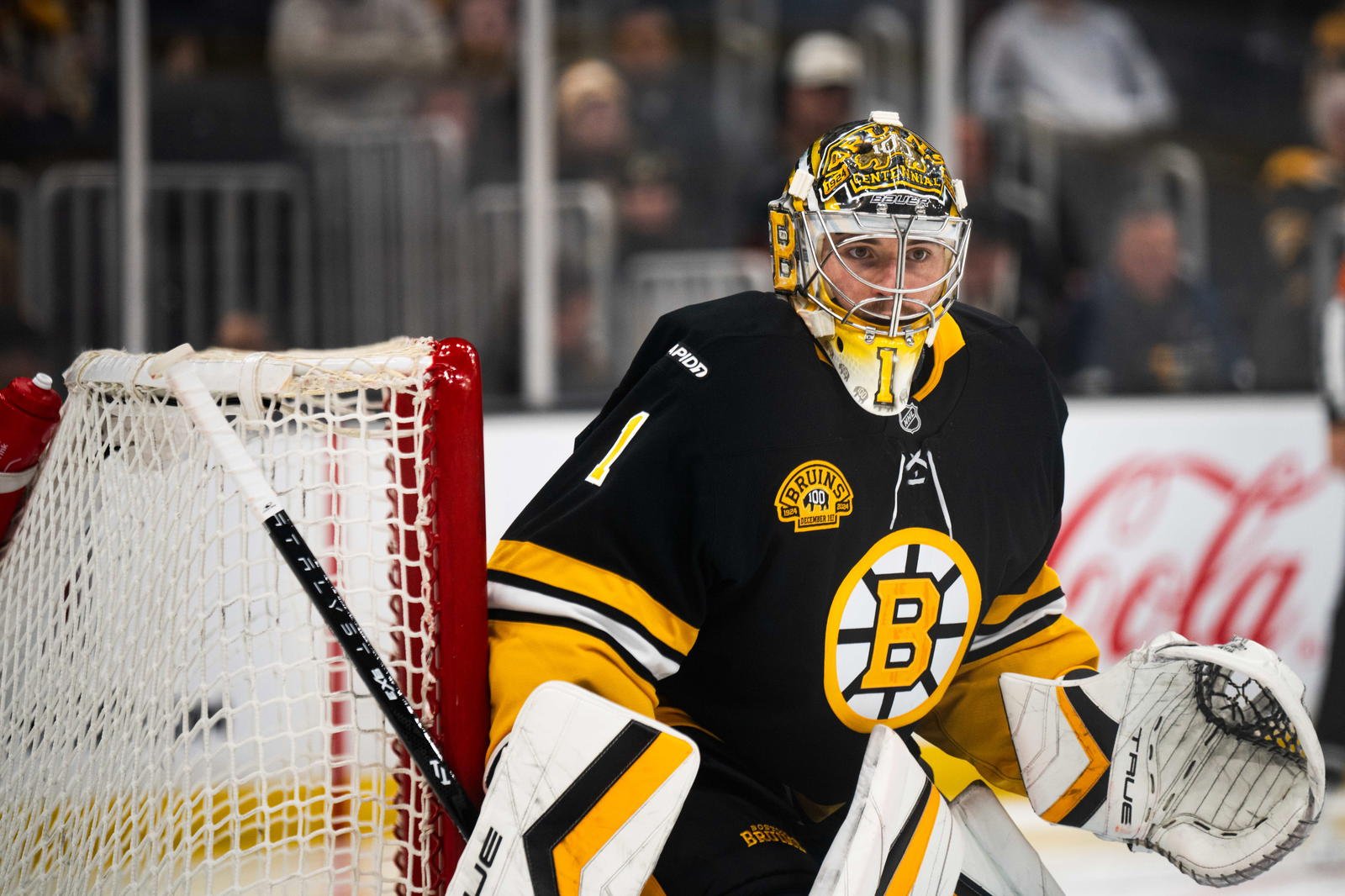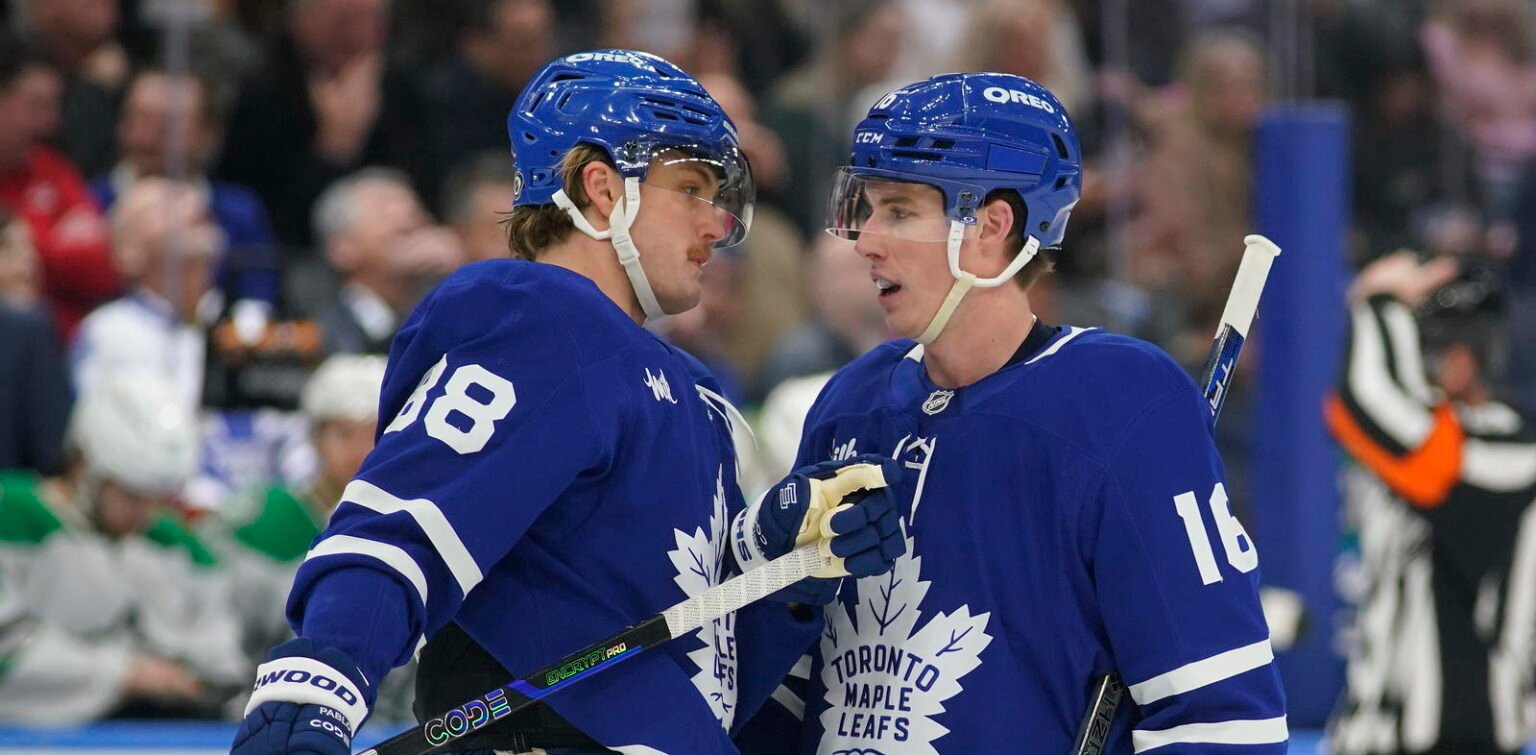With the NHL pre-season having kicked off, there are already several big-name young players stuck in limbo. New Jersey Devils’ Luke Hughes, Anaheim Ducks’ Mason McTavish and Nashville Predators’ Luke Evangelista are the three notable RFAs left without an NHL deal as training camp is well underway. In addition, former first-round picks Alexander Holtz and Rasmus Kupari are also in need of a new contract.
Fans and the media have learned that there is a pattern when players and teams have lengthy standoffs in contract negotiations. A trend has formed over the years where players would miss camp and sometimes part of the season due to negotiations, only to underperform once an agreement had been made.
In the previous article, The Hockey News looked at how some of the most notable contract holdouts of the pre-salary cap era fared. However, with the 2004-05 lockout bringing in unrestricted free agency for long-tenured NHLers, restricted free agency was left to younger players. Furthermore, a Dec. 1 deadline for RFAs and the potential for offer sheets has made it so that fewer teams are willing to sit a player out the entire season due to negotiations.
The Kyle Dubas-led Toronto Maple Leafs were entangled in two major RFA negotiations that spiralled. William Nylander was coming off back-to-back 60-point, 20-goal seasons. He showed plenty of flashes of skill, but at that point, he hadn’t elevated his game to that of a true star.
The Swede hit the closed market in July 2018, and over the next months, anxiety began to build within Leafs Nation as ‘Willy’ remained without a contract.
He would stay in Europe, practising with the Austrian team Dornbirner EC. With just minutes remaining before the Dec. 1, 5 p.m. deadline, Nylander’s six-year, $6.9-million extension was processed.
The short-term return on investment was bleak. Nylander only skated in 54 games that season, notching just seven goals and 27 points. Even after that disastrous campaign, Nylander picked up right where he left off before the contract dispute.
It was only in the last few seasons of the deal that it truly became a steal for the Leafs as Nylander finally became the superstar that the team knew he had in him. To this day, Nylander remains an integral piece of the Leafs and a fan favourite.
Just one season after the Nylander saga, Mitch Marner became an RFA in July 2019. He had just recorded a career-high 94-point season — the most since Mats Sundin’s 90-point campaign in 1996-97. Negotiations were incredibly tense, with his agent reaching out to the Swiss league’s ZSC Lions that August as the two sides couldn’t come to a deal.
Marner would sign a six-year deal just after training camp began, which would eat two years of UFA eligibility, but with a no-move clause on the last two years of the deal, preventing any trades without Marner’s express permission.
On the ice, Marner’s production took only a minor dip during the following two shortened pandemic-impacted seasons, while also working on his defensive game. He would then surpass his prior production, even reaching the 100-point mark just last season.
However, the damage was done. The tough negotiations turned the hometown kid into a punching bag for the fans, which would eventually become one of the causes for his departure from the team to the Vegas Golden Knights this past summer.
When Ottawa Senators’ Brady Tkachuk became an RFA at the end of the 2020-21 season, and was in a similar situation to Nylander. Tkachuk had eclipsed the 20-goal mark twice, but he had only had a career high of 45 points at that time from his rookie season.
Despite the stagnant production, then-GM Pierre Dorion knew that he had a star-in-the-making. However, Dorion’s negotiation tactic of signing young players to long-term deals over bridge contracts while offering little to no bonus money made the unproven Tkachuk’s negotiations difficult, forcing Tkachuk to miss camp and pre-season.
Eventually, the two sides settled on a seven-year deal at just over $8.2 million per season, announced at the team’s home opener. He missed three games before finally stepping into action, and just 22 days later, the rebuilding Senators entrusted him as the team’s captain at 22 years old.
Tkachuk’s story is one of the best cases among fraught negotiations in terms of performance. In the campaign following the contract debate, he put up his best season yet with 30 goals and 67 points. Now, Tkachuk is a bona fide star, leader and fan favourite.
While players have shown varying degrees of success after missing camp, pre-season or even regular-season action because of contractual impasse, Jeremy Swayman’s case shows that the outcomes for goaltenders can be significantly worse. Simply put, the Boston Bruins botched Swayman’s negotiations from the get-go.
In 2023-24, the Anchorage, Ala. native split the crease with Linus Ullmark, who was coming off a Vezina Trophy-winning season. Swayman had marginally outplayed the veteran goaltender in the regular season, posting a .916 save percentage to Ullmark’s .915.
However, in the playoffs, Swayman would go on to take the reins with a .933 SP over 12 games. As the off-season began, the team decided to prioritize the younger goaltender who had better results.
The B’s could have easily kept Ullmark around as a stake to drive Swayman’s asking price down, as Swayman had no clear runway to become a bona fide starter in the short-to-medium term with Ullmark around.
However, the Bruins rushed an Ullmark trade to Ottawa, giving Swayman’s camp leverage to increase their asking price. At that point, it was clear that Boston needed Swayman as their No. 1 netminder.
As the weeks turned to months, Swayman and the Bruins struggled to come to terms until just ahead of the regular season, where the parties convened on an eight-year deal, $8.25 million AAV—the same price as Ullmark’s extension with the Senators but at twice the length.
The rust was very evident once Swayman stepped foot into NHL action, as it felt as though he became the worst version of himself, with accentuated weaknesses and inconsistency. He would post a .892 SP and 3.11 goals against average while starting 58 games.
Those were far from the numbers Boston was hoping for from a goalie fresh off a top-10 Vezina Trophy finish. Now with a full camp, one can expect that in his sixth year, the 26-year-old goaltender can bounce back into form and live up to the price tag and expectations of a legit starter.

Bruins Star’s Revenge Tour Starts Now
With training camp here, all eyes are undoubtedly on Boston Bruins goalie Jeremy Swayman.
Already with several negotiations dragging into pre-season play, these examples serve as reminders that when players miss training camps due to negotiations, it can lead to major slumps in the short term, and worse, fractured relationships in the long term.
Luke Hughes may be willing to put water under the bridge once he signs, thanks to playing with his brother Jack, and McTavish might be able to as well, with the Ducks potentially eyeing him as a future captain, making his situation not too dissimilar to that of Brady Tkachuk’s.
As the saying goes, what happens in Vegas stays in Vegas. However, what happens in negotiations stays with the players.
For action-packed issues, access to the entire magazine archive and a free issue, subscribe to The Hockey News at THN.com/free. Get the latest news and trending stories by subscribing to our newsletter here. And share your thoughts by commenting below the article on THN.com.
Read the full article here


